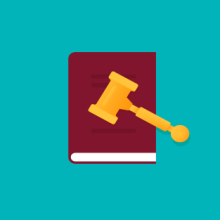Alexandria Launches Marcus Alert System and Names City’s Coordinator
Alexandria Launches Marcus Alert System and Names City’s Coordinator
A DCHS CONNECT FEATURE

January 13, 2022--The City of Alexandria is implementing the Marcus-David Peters Act, a statewide framework intended to reform the response to behavioral health crises, and accordingly has named the City’s coordinator to oversee the implementation of the legislation locally.
The new system aims at improving the response to behavioral health crises, ensuring that such crises are responded to in a clinically appropriate manner, including a reduction in police involvement.
Mike Razak, who has an educational background in psychology and extensive experience in managing situations where behavioral health intersects with law enforcement, will be responsible for coordinating the development and implementation of Virginia’s Marcus Alert legislation, which will be undertaken by a technical group in collaboration with a larger mission group made up of community members and stakeholders.
“The whole idea behind Marcus alert is to revamp the crisis response system in the state of Virginia and subsequently in the City of Alexandria so that a behavioral health crisis is met with a behavioral health response,” said Razak. “The aim is that police are the responders of last resort for mental health, and when police are the first responders or just have to be involved, the aim is to make sure that they are better trained and better equipped to handle individuals in mental health crisis”.
Back in 2020, Governor Northam signed legislation establishing the use of the mental health awareness response and community understanding services (MARCUS) alert system in the Commonwealth of Virginia. The law is named after Marcus-David Peters, a 24-year-old Black biology teacher who was fatally shot in May 2018 by a Richmond Police officer during a behavioral health crisis.
Since then, the state has created the Marcus Alert System, which provides that the state’s Department of Behavioral Health and Developmental Services (DBHDS) and the Department of Criminal Justice Services (DCJS) will establish a system to advance a behavioral health response, implemented through a racial and social equity lens, and thus ensure that all persons in crisis are treated with compassion and receive the best services to meet their needs from the time of the initial response.
The new system will establish regional call centers to receive and resolve calls regarding potential behavioral health crises, quickly assessing risks and, when appropriate, dispatching professionals to help the person in crisis.
In the City of Alexandria, the work related to the establishment of the local centers started last year. The entire system is expected to be in effect within four years.
Strategically, the new model revolves around the implementation of three protocols plus community coverage, all governing the transformational change in the way services are being delivered in response to behavioral health crises.
The first protocol is about diversion from law enforcement to the behavioral health system. It focuses on the establishment of the federal 9-8-8 number, which is a national hotline for behavioral health crises calls. In Virginia, 9-8-8 will be connected to regional call centers.
During a 9-8-8 call, the situation will be assessed, and the level of intervention will be determined by a trained call taker. There are situations when police intervention will be needed, in addition to the mental health professional, and that relates to the second protocol, which is the development of understanding and agreements between law enforcement, call centers and mental health specialists.
The third protocol is aimed at revamping law enforcement’s behavioral health response so that police are better prepared to assist individuals in a behavioral health crisis. It also requires all local law enforcement to consider their broader interactions with individuals in a behavioral health crisis, not limited to when they are part of a co-response team.
Community coverage involves non-law enforcement and non-crisis call center programs that provide ongoing behavioral health prevention, response and support in the community.
“Until now 911 has had three options: they send police, a fire and rescue team or an ambulance. Now they will have the option and the training to identify calls that are related to mental health or behavioral health, and they will have more resources than before because they will have mental health professionals involved,” said Gabriel Duer, Division Chief of Emergency and Crisis Response Services at the Department of Community and Human Services.
The MARCUS Alert System will allow those experiencing a behavioral health crisis to call either the 9-8-8 number or 9-1-1. In both scenarios, the call will be assessed and responded to with the most appropriate clinical response, with a priority given to behavioral health responses not involving law enforcement.
To learn more about the Marcus Alert System in the City of Alexandria, contact Mike Razak, Alexandria’s Marcus Alert Coordinator at michael.razak@alexandriava.gov.